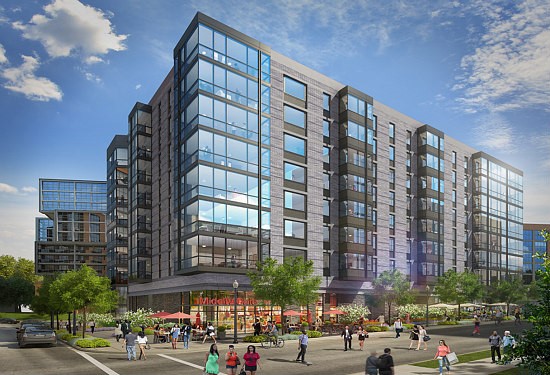This story is so old-school DC—but in the worst kind of way. Mayor Bowser and the DC Council want to give $82 million to developers for projects around Union Market, even though DC’s independent finance office says they don’t need DC’s financial help. What’s more, the city isn’t asking the developer for anything in return, such as good-quality jobs, and there is no plan to address the impact that city-supported gentrification would have on housing in the surrounding area.

It’s reminiscent of days when the District was more desperate for development and offered subsidies easily. With a thriving economy, the city should not be subsidizing projects like this anymore.
Businesses in the warehouse district around Union Market want to do develop millions of square feet of housing, retail, and other uses. They are asking for $84 million from DC for a parking garage and public infrastructure. But there are important questions of whether a subsidy is needed and what DC would get in return:
- Does Union Market Need a Taxpayer Subsidy? Probably Not. The District’s Chief Financial Officer reported that the developers haven’t committed money themselves or sought traditional bank financing. Any DC subsidy should come last—not first—when it would be more clear if a subsidy is needed. It’s no surprise that the CFO’s testimony concluded that a subsidy “is not necessary for the redevelopment of the site to move forward.”
- Will DC Residents Get Good Jobs? No Promise. The District has not asked the developers at Union Market to ensure that the jobs created there have good wages and benefits. Last week, we pointed out that the same thing happened at The Wharf, resulting in many construction jobs paying only around $15 an hour, without health or other benefits. The District should require the developer to meet certain wage and benefit requirements or to enter into “project-labor agreements” with construction unions.
- Will There Be Affordable Housing? Not Much. The District hasn’t asked the developers to provide any more low-cost housing than private developments that get no public subsidy.
The solutions to these problems are straightforward.
- First, DC should hold off on approving any subsidy until developers have finished seeking private financing.
- Second, all development at Union Market should be required to operate under a project-labor agreement or otherwise meet prevailing wage and benefit standards.
- Third, the District should require that more affordable housing be included in the development.
There’s one more thing the District should do. Development in the Union Market area is bound to speed up gentrification in the neighborhoods nearby, which in turn will raise housing prices, putting low and moderate-income families at risk of displacement. Any Union Market subsidy legislation should require a study of existing affordable housing in the area and develop an affordable housing preservation plan. The plan should identify ways to help low-income homeowners stay in their homes, preserve existing affordable rental properties, use vacant land to develop affordable housing, and pursue other strategies such as community land trusts.
To print a copy of today’s blog, click here.
